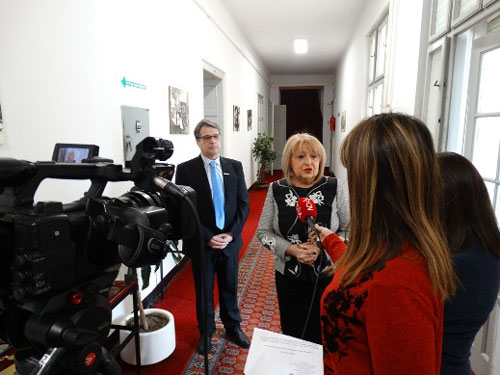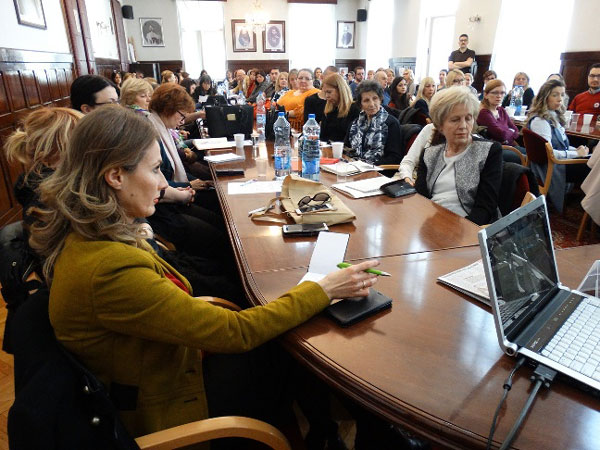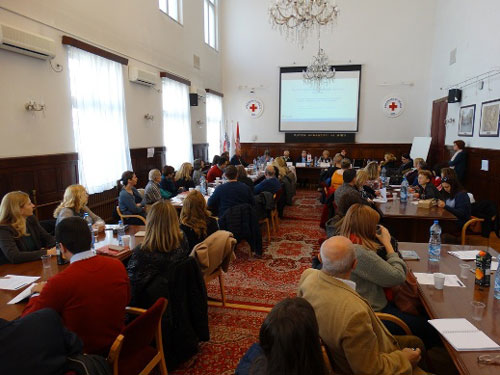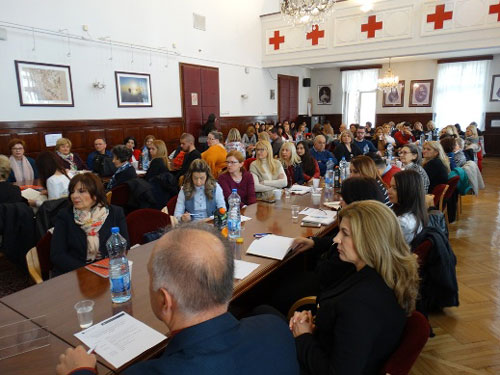- news
- conference „intergenerational exchange and intergenerational attitudes“ organised in the red cross of serbia
Conference „Intergenerational exchange and intergenerational attitudes“ organised in the Red Cross of Serbia
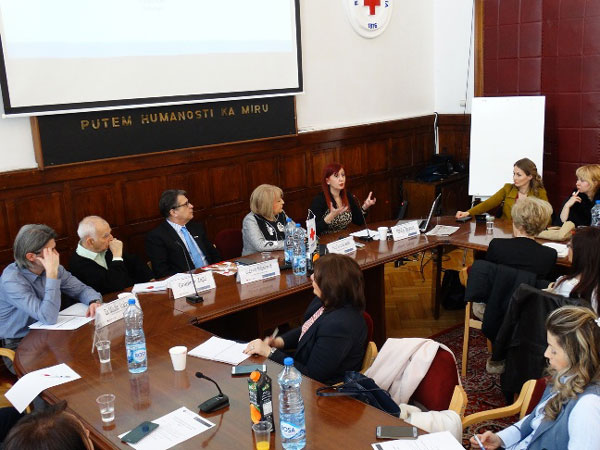
At the Red Cross of Serbia headquarters on 13 of March 2019 a conference was organised. It was entitled „Intergenerational exchange and intergenerational attitudes“ and it presented the results of a research on these two topics. The Conference is a part of the project implemented by the Red Cross of Serbia in partnership with the Centre for Responsible Action, with support provided by the Office of the Minister without portfolio responsible for demographics and population policy, prof. Dr Slavica Djukic Dejanovic. The objective of the research was to explore intergenerational exchange and intergenerational attitudes in the Republic of Serbia and, based on the acquired knowledge, create recommendations for public policies that would improve relationships and solidarity within and between generations.
The “Intergenerational exchange and attitudes” research was conducted during December 2018 and January 2019 in ten Serbian municipalities. Methodologically, it combined quantitative and qualitative approach. Quantitative portion of the research was implemented through face to face interviews and qualitative part was through focus group interviews. The interviews were anonymous and the municipalities that were included are as follows: Sombor, Plandiste, Indjija, Loznica, Kragujevac, Krusevac, Nis, Knjazevac, Palilula and Savski venac. 753 persons from different generations took part.
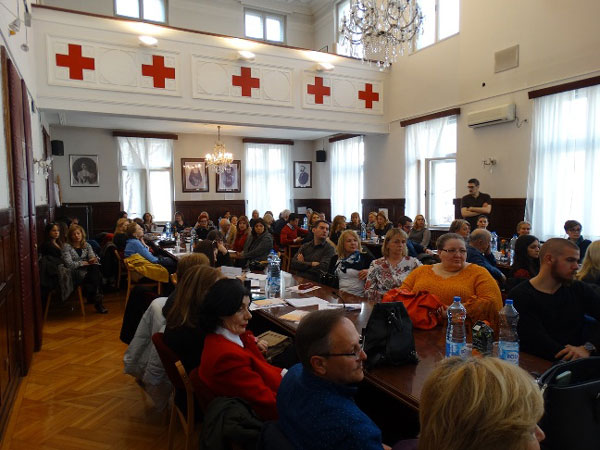
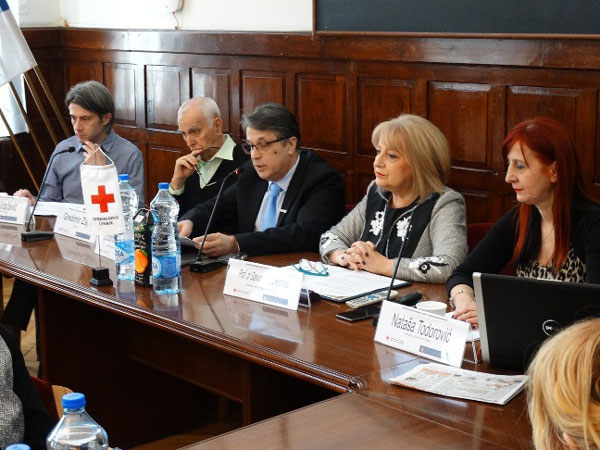
The conference participants were first greeted by Mr Ljubomir Miladinovic, the Secretary General of the Red Cross of Serbia, reminding them that solidarity is a foundational value of the Red Cross of Serbia’s work, stating that “our mission is to promote solidarity and thus contribute to promotion of humane values that are essential for development of a cohesive society”.
Minister without portfolio responsible for demographics and population policy, prof. Dr Slavica Djukic Dejanovic who opened the Conference stressed that the modern society is marked by rapid changes at all levels and different areas and significantly affect individuals, families, communities and the society. According to the data from 2017, 962 million people worldwide was over the age of 60 and it is estimated that by 2050, this population will exceed two billion. In Serbia 24.4% of the population is over 60 and 19.2% over 65 with projections that by 2050 the proportion of persons over 60 will grow to 32.3%. It is important to understand that intergenerational cooperation is necessary now more than ever because the discussion should not be about generations, but about mutual interests and needs. Development of a society will not happen if we divide communities along generational lines and by different activities, it is necessary to develop interdependent and multigenerational communities where we will learn from each other.
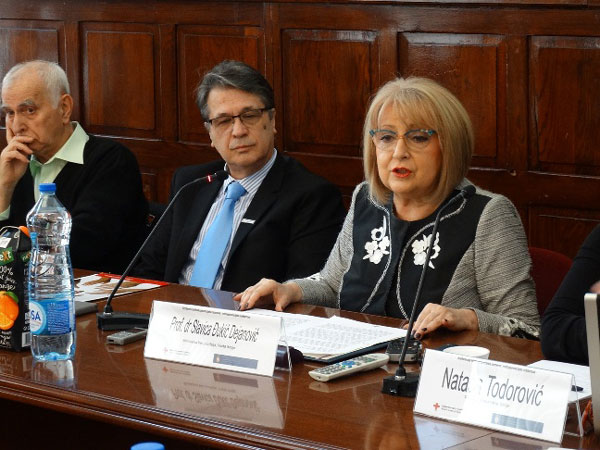
Through strengthening intergenerational solidarity we will enable each generation to have its place in the society and access to equal opportunities.
The research results were presented by Natasa Todorovic and dr Milutin Vracevic of the Red Cross of Serbia and Mr Gradimir Zajic, retired sociologist.
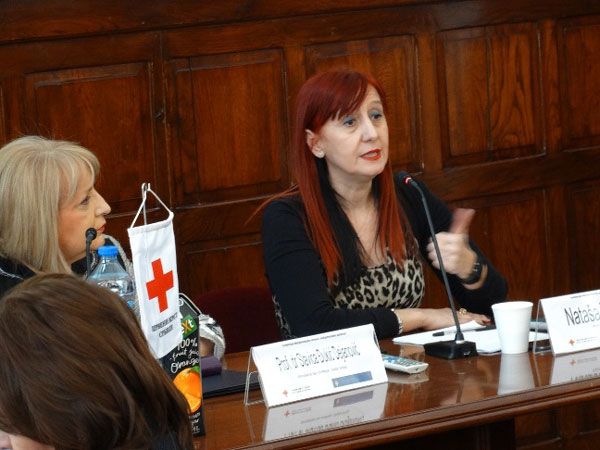
Natasa Todorovic presented the part of the research related to attitudes of generations to each other. In this part of the research attitudes of different generations to each other as well as intra-generational attitudes were analysed. Do older people present a burden to the economy? 68% of young people, 80% of middle aged people and 76% older people disagree with this. This is a good basis for a cohesive society but it is fair to say that more needs to be done on promoting the role of older people in the society, especially to young people. As for the young people, a question was asked whether young people contribute too little to the economy. 42% of young people, 51% of middle aged people and 58% of older people agree and this invites is to think are we doing a good job in promoting contribution of young people because they do contribute through informal work and volunteering.
Mr Gradimir Zajic presented the part of the research on intergenerational exchange. One of the first bits of information shows that when it comes to intergenerational exchange, exchange of money is notably more frequent than exchange of support in activities (54% receives or has received financial assistance, 65% gives or has given financial assistance, and 25% receives or gives support in activities).All three generations (young people middle aged people and older people) almost equally provide financial assistance (63%, 65% and 69%) but younger generation receives it more (70% versus 44% in the middle aged generation and 49% in the older generation). Older people are the majority when it comes to receiving support in activities (40% versus 15% and 19%). In financial support, regular support is the most frequent form for all the three generations and when it comes to older people, 26% also receives financial support for medicaments and treatment costs. Regular financial support is, alongside gifts of different kinds, the most frequent form of provided financial transfers. As for the exchange of time, 20% of older people stated that they see their children only rarely.
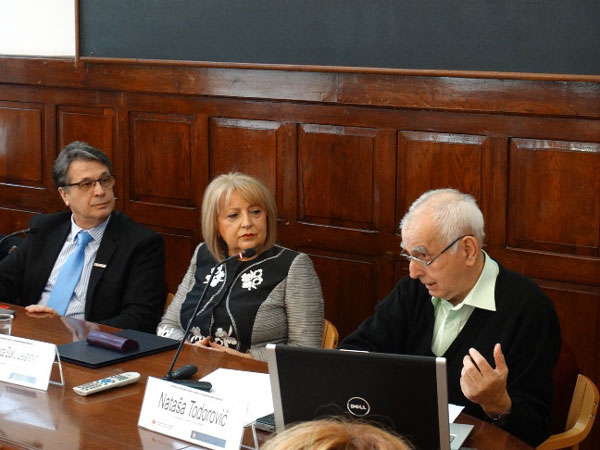
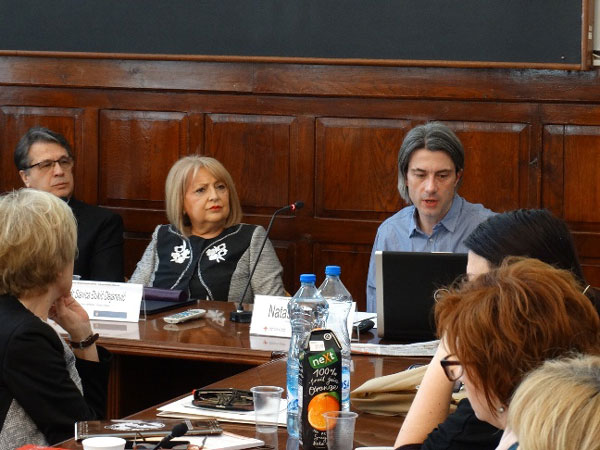
Dr Milutin Vracevic of the Red Cross of Serbia in his presentation showed the links between demographic ageing, increase of the risk of functional dependence in the older age and the importance of informal support services that are provided by younger generations to older people, most frequently in the family context. With the estimation that 90% of older people in Serbia rely “significantly” on family support and the data from the research showing that 46.2% older people needs the home based support services (versus 13% of middle aged people and 11.6% of young people), it becomes clear how important intergenerational support through informal services is. The research showed that on the average, participants during one month receive 328 hours of support (direct support, support with house chores, support with tasks around the house, support with childcare, support with transportation and shopping for groceries) which is equivalent to 112,000 dinars according to market prices.
This data shows how important informal the services of informal care providers are and that it is necessary to systematically invest in training and services for this part of the population, as well as in preventive health programmes for the whole population, within the framework of healthy and active ageing concept.
